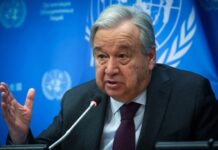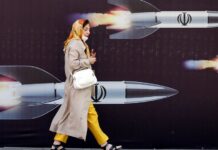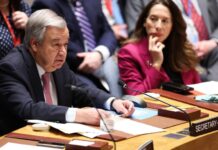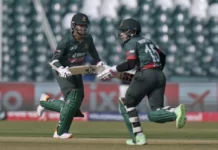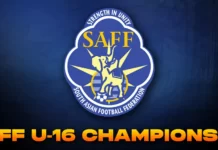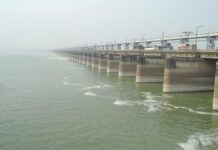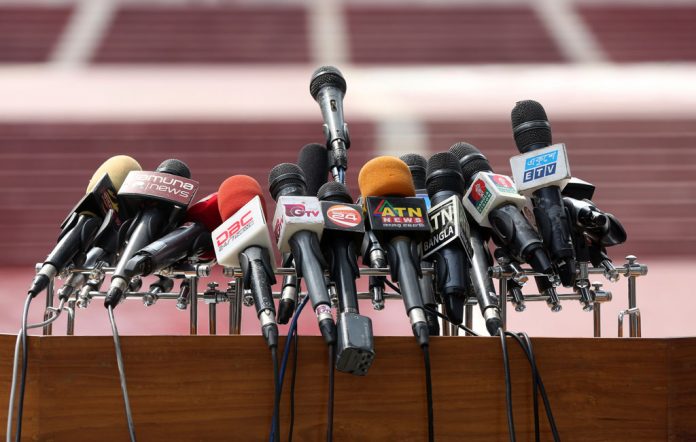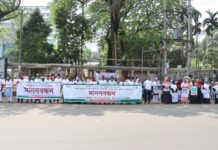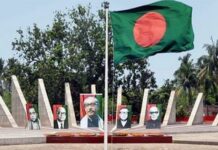Kbd M Alamgir Hossain:
Media plays a watchdog role in influencing EMB status during elections. How elections are reported has important implications for the health of democracy and informed citizenship. Fair and balanced media coverage during elections can foster transparency, provide opportunities for information and knowledge sharing, promote an inclusive electoral process.
At the same time, biased media coverage can undermine election integrity which is constraint to transparent election. Sometimes, EC is to perform pertinent and praiseworthy media guidelines not only to respect the digital security act but also to shun the media coverage strategies for fair election. 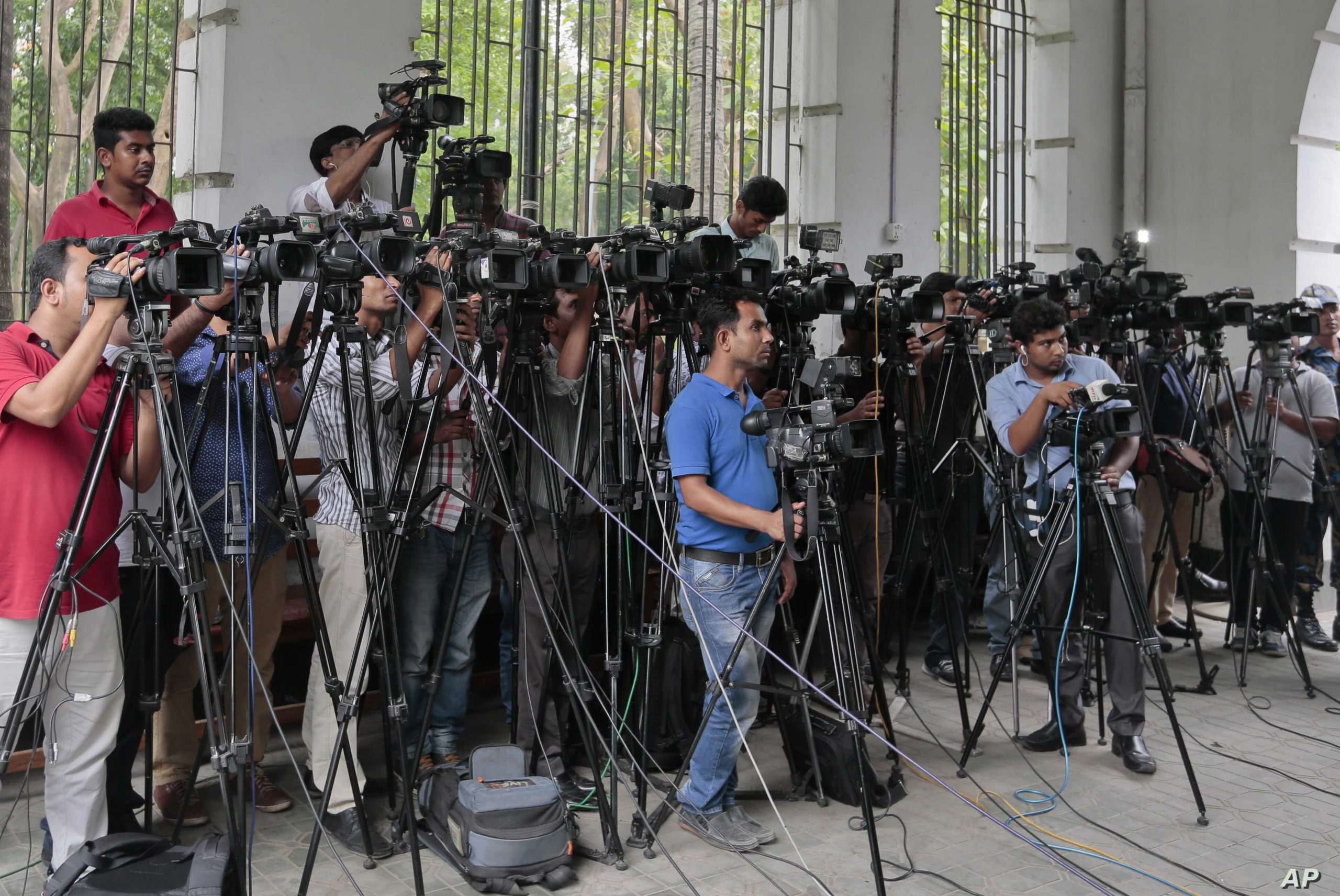
FILE- In this May 3, 2016 file photo, Bangladeshi journalists covering news on October 13, 2018 in the nation’s capital, Dhaka. (AP Photo/A.M. Ahad, File)
Ahead of various election EC issues new guidelines strictly limiting the coverage related activities of the journalists during the polling. In a first ever such move, it bans photography, videography, or live telecast of the polling related activities inside voting centres.
Electoral experts suggest the following guidelines which should be carried out for unambiguous election reporting.
1) The mass media should not publish election results before those are announced by the Election Commission to avert confusion. Problems and confusions may arise if the election results are announced by the media before the Commission’s announcement.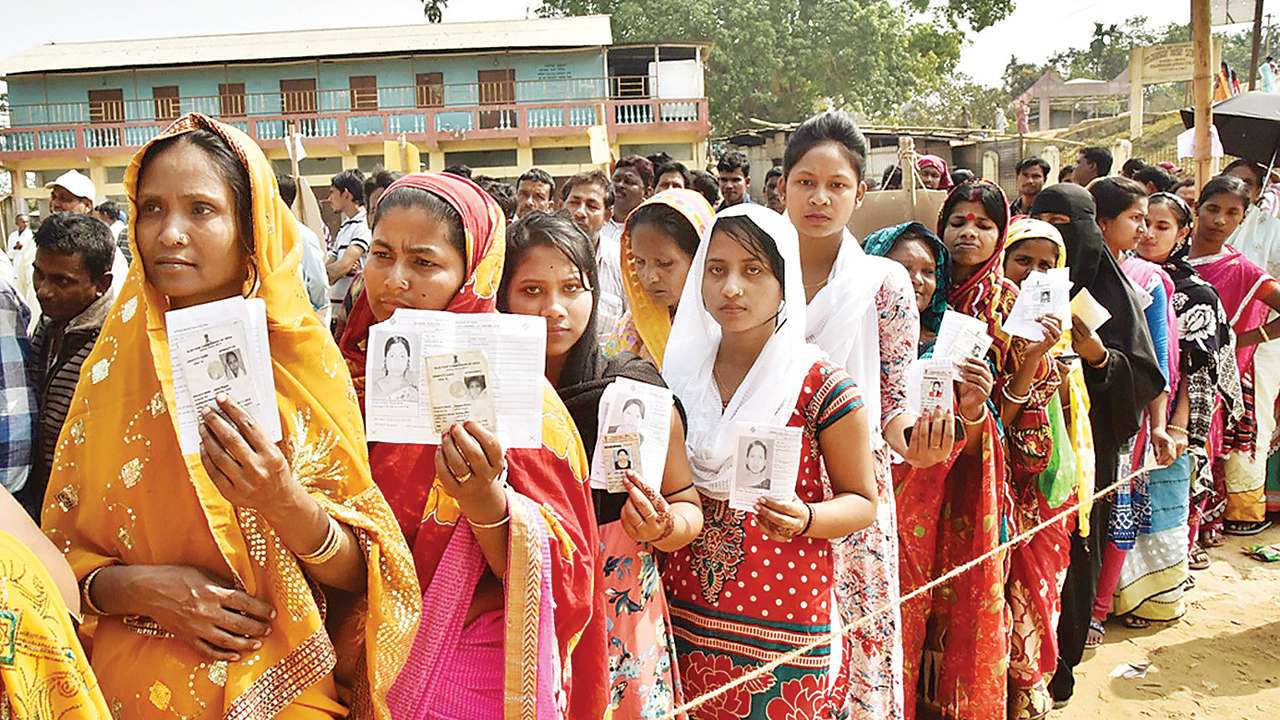
2) The mass media shall disseminate all information and news in connection with the election process in a balanced and fair manner, without being biased.
3) The media should publish or broadcast issues of campaigns, excerpts from campaigns and candidates’ speeches, important information about symbols, banners or other campaign materials of the parties and party manifestos. In all cases, balance in news must be maintained.
4) Balance should be maintained in the coverage of candidates and political parties. No one candidate and political party should be given substantially more coverage than others. Journalists would not project one candidate or political party to the exclusion of others. 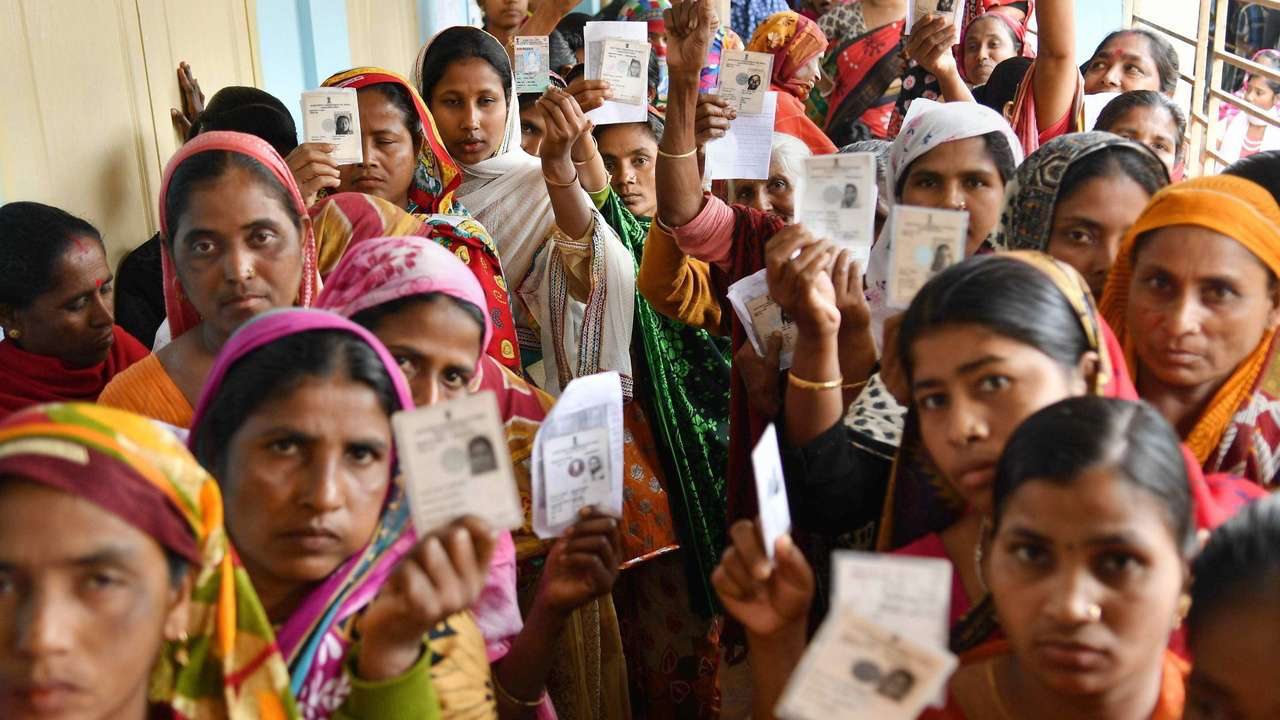
5) The do’s and don’ts include that reporting for the mass media shall maintain clear distinctions between their news reports and those of the editorial and post-editorial comments.
6). Reporters should not hide, suppress or prevent any pertinent information and news relating to election from being disseminated.
As an election officers we believe Reporters should have well-groomed activities and electoral organizations should take pragmatic initiatives for uplifting media coverage in election. Media Reporters may follow ICF’s (international workshop held in Myanmar in 2015) tips like think citizens, study voter registration procedure, Fact check everything, know the election laws, Treat polls with caution, start early, Know you are crucial etc to pave the way of their professionalism.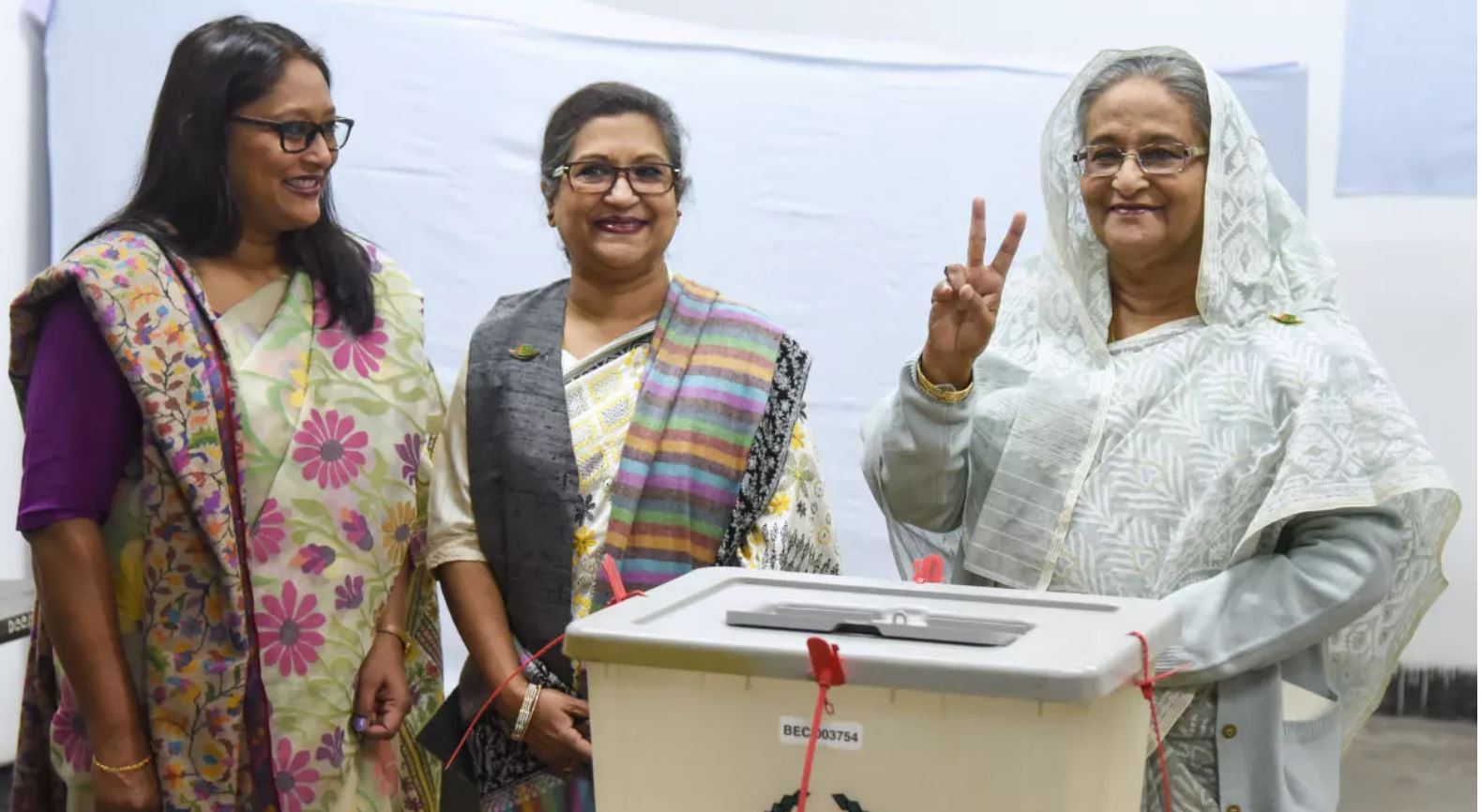
To promote fair, safe and professional media election coverage, UNESCO as well as IFES support worldwide advocacy to encourage full, fair and efficient disclosure of information to journalists covering the elections; training to enhance professional election reporting; the production and distribution of election guidelines and facilitate a workshop for journalists on importance of reporting on elections accurately and impartially throughout the election cycle.
Present EC is an enthusiastic of conducting a credible election which can bring praiseworthy media coverage. Let alone, ECS has a prompt section like PR and also media centre from where all media reporters can exchange their views, foster innovative ideas and design the techniques of media coverages. EC may arrange some effective seminars, trainings and workshops for the media reporters with a view to uplifting their media coverage efficiency. 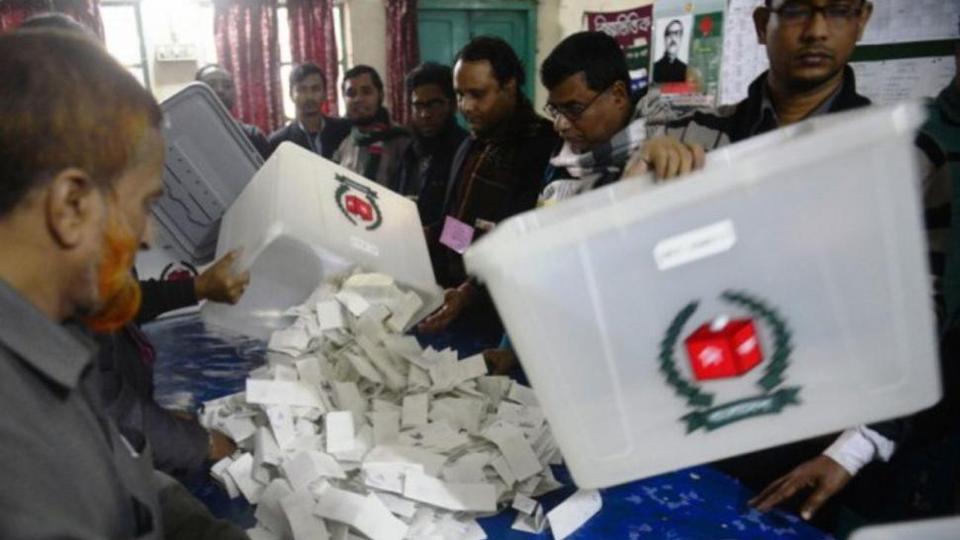
ETI (Electoral training institute) may also introduce interactive courses which would deal with reciprocal relationships between the reporters and other electoral stakeholders. EC often carries on briefing of the election reporters on regular basis in its own media Centre. EC also maintains close and regular contact with the media seeking cooperation’s for balanced, nonpartisan news coverage and editorial views encouraged to offer constructive suggestions for improvement of the overall election environment and to express views impartially before and after the polling. ETI often conducts polling agents” training successfully during election. 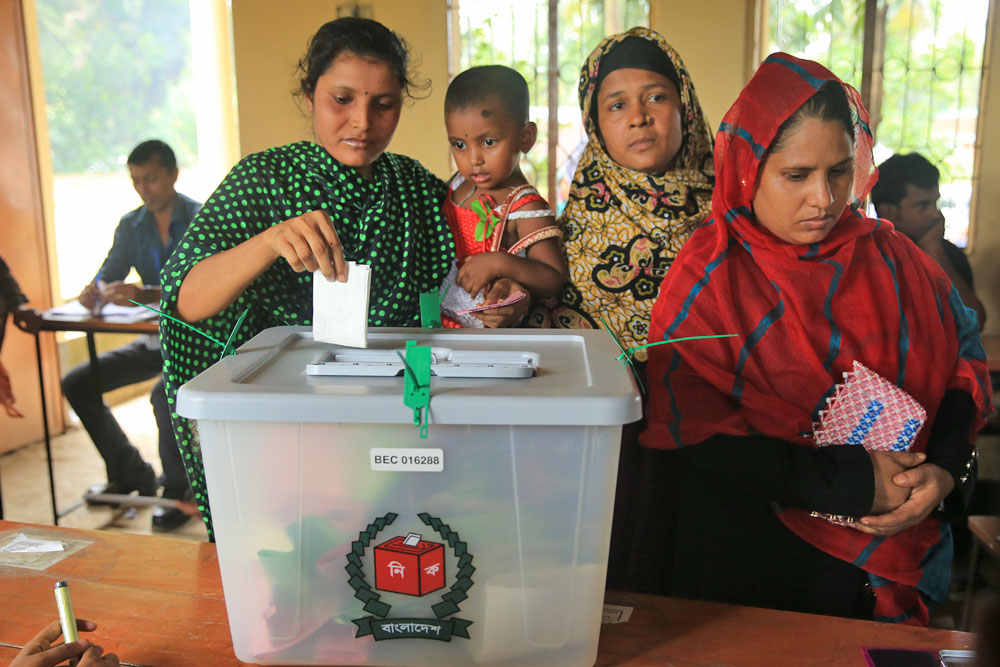
Election reporters can take part in an effective media coverage training or workshops arranged by ETI. ETI may invite resourceful trainers for conducting concerned session. Training modules made by ETI may focus on presenting national/international experiences and best practices on topics such as fundamental rights and freedoms, ethics of journalism, reporting through the electoral cycle and how best to be prepared to cover election campaigns and electoral processes.
Writer: Kbd M Alamgir Hossain, District Election Officer, Moulvibazar, Email: [email protected]


